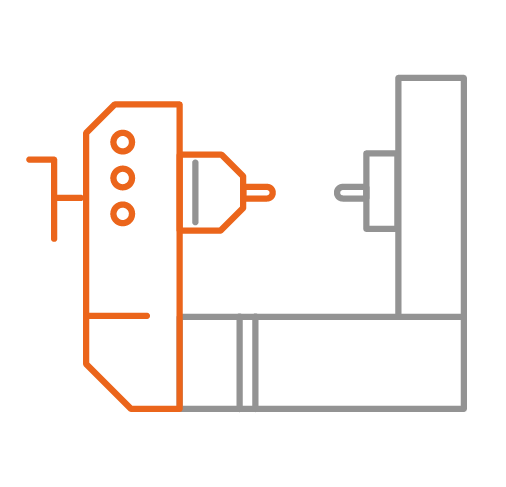METAL AND PLASTIC MACHINING
CNC Turning Processes
TECHNICAL CONSULTING | INDUSTRIAL PRODUCTION | ENGINEERING SERVICES
CNC Turning is an advanced subtractive machining process where computer-controlled cutting tools shape materials with exceptional precision. Below, we outline the key aspects of CNC turning.
MDP Precision specializes in professional CNC turning, utilizing state-of-the-art machines to ensure the highest quality and precision in machining. With extensive industry experience, our team is equipped to handle even the most complex projects, delivering products with outstanding technical specifications.
We have a modern machine park for CNC machining, enables us to execute orders at a high standard, whether for one-off production or large-scale serial manufacturing. Our machines are continuously upgraded to keep pace with the latest technological advancements, ensuring we deliver top-quality products to our clients.

Key Advantages of CNC Turning Compared to Other Machining Methods
PRECISION AND REPEATABILITY
CNC turning ensures high precision and repeatability of manufactured components, critical for industries with stringent tolerances, such as aerospace and automotive.
COMPLEX GEOMETRIES
CNC turning enables the creation of intricate shapes, threads, grooves, undercuts, and more. The use of driven tools and Y-axis capabilities (in turning-milling centers) enhances versatility.
MATERIAL AND COST EFFICIENCY
CNC turning optimizes material usage, reducing waste and production costs. The precision of the process also minimizes the need for additional finishing operations.
ENHANCED PRODUCITON EFFICIENCY
CNC enables large-scale production while maintaining high quality, making it ideal for serial manufacturing.
CNC Turning Process
DESIGN
Creating a computer model of the component using CAD software.
PROGRAMMING
Converting the model into G-code to control the CNC machine.
MACHINE SETUP
Loading the code into the machine and setting the workpiece zero point.
MACHINING
Mounting the material on the spindle and initiating the cutting process.
QUALITY CONTROL
Verifying the quality and dimensional accuracy of the finished part.
Our company places a strong emphasis on quality and precision. Every component undergoes rigorous quality control before shipment to the client. We collaborate with clients from various industries, tailoring our services to their specific needs. With our team’s expertise and professionalism, we guarantee timely order fulfillment without compromising quality.
CNC turning is a versatile technology that enables the production of a wide range of industrial components. Below are some of the most commonly manufactured parts:

CRANKSHAFTS
Critical components in internal combustion engines, widely used in the automotive industry.
BUSHINGS
Utilized in various applications, from automotive to aerospace, often made from materials like stainless steel or aluminum.
DRIVE SHAFTS
Essential for power transmission in vehicles and machinery, ensuring efficient operation.
ENGINE COMPONENTS
CNC turning is used to produce precision engine parts, such as shafts, pistons, and connecting rods.
GEARS
Vital for power transmission in gearboxes and mechanical systems.
PINS AND CONNECTORS
Small components made from metals or plastics, serving as cable terminations or connectors.
NUTS AND THREADED PINS
Used in threaded connections for stable and durable mechanical assemblies.
SLEEVES
Applied in hydraulic and pneumatic systems, critical for efficient fluid and gas transmission.
CNC turning supports the machining of a wide range of materials, including stainless steel, aluminum, titanium, and plastics such as polycarbonate and PTFE (Teflon).

Surface Grinding:
The purpose of surface grinding is to enhance the aesthetic and protective qualities of a surface, ensuring it is smoother and properly finished. The amount of material removed is minimal, requiring exceptional precision.
Magnetic Table Workspace: 500 x 200 mm

